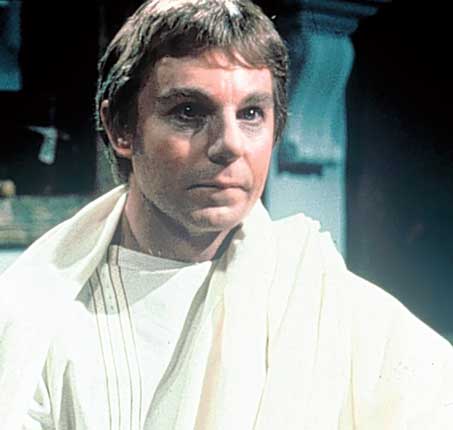The Week In Radio: No place like Rome as the emperor strikes back

Your support helps us to tell the story
From reproductive rights to climate change to Big Tech, The Independent is on the ground when the story is developing. Whether it's investigating the financials of Elon Musk's pro-Trump PAC or producing our latest documentary, 'The A Word', which shines a light on the American women fighting for reproductive rights, we know how important it is to parse out the facts from the messaging.
At such a critical moment in US history, we need reporters on the ground. Your donation allows us to keep sending journalists to speak to both sides of the story.
The Independent is trusted by Americans across the entire political spectrum. And unlike many other quality news outlets, we choose not to lock Americans out of our reporting and analysis with paywalls. We believe quality journalism should be available to everyone, paid for by those who can afford it.
Your support makes all the difference.When you're freezing cold, financially anxious, and face weeks of trudging through aisles of iPod socks and novelty candles, what you really need is comfort. Downton Abbey was superlative comfort telly, a great plum pudding of heart-warming clichés and stereotypes done to perfection. But radio has its comfort-listening too.
Radio 4 usually rustles up a spot of Dickens, and indeed there is a spoof A Christmas Carol lined up for Christmas Eve, but until then, what could be more welcome than I Claudius, Robert Graves's 1934 saga of the Roman emperors?
The first comforting thing for people of a certain age is that it reminds them of their youth, specifically the 1976 television version with Derek Jacobi doing a masterclass in stammering. Robin Brook's excellent version re-introduces Jacobi in the role of Augustus, Claudius's step-grandfather while Tom Goodman-Hill plays Claudius with slightly less of a stammer, which is probably just as well given it's radio. Harriet Walter's Livia is magnificently scheming and nothing like your traditional granny. The first episode, in which Claudius grows up alternately scorned or ignored, was proof that radio drama can be just as appealing as event TV, leaving you determined to make a date with Classic Serial for the next five weeks and possibly force your children to listen too.
This week's enjoyable Woman's Hour drama, Elizabeth Gaskell's Wives and Daughters, is also archetypal comfort fodder, stretched out over two weeks and promisingly set in Hollingford, "a small town where everyone knew everyone's business". The opening gives a clue to what we're in for. "In that town there was a house, in that house there was a room and in that room there was a bonnet." And in that bonnet, of course, there was a costume drama. This being radio, the costumes are all in the acting, but the story of Molly Gibson, motherless doctor's daughter taken up by the folk from the big house, follows a narrative arc so familiar we could probably recite in our sleep. Will Molly get to marry Roger? Gaskell died before finishing this, so Theresa Heskins got to make up her own ending, but my hunch is that it will end happily.
Should we feel guilty about this yearning for the rose-tinted? Is the historical soap opera just easy escapism? And does it matter if it is? I don't think so, especially given how much there is, in terms of drama alone, to offset it. There was a remarkably good From Fact to Fiction about last week's student march. Janice Okoh's Carnival performed a neat reversal in having single mother Lorraine, played by Clare Perkins, trying to persuade her daughter Nicole (Deeivya Meir) to join the march rather than stay in with her feckless boyfriend. Both the dialogue and the acting were so sharp, it felt like eavesdropping. More to Okoh's credit was the fact that it was plainly completed in 24 hours flat, presumably with an awful lot of black coffee.
And if you really want to throw a dampener on things, there's always Philip Larkin, patron saint of unhappy endings, who was the subject of a sensitive tribute by David Walliams and Andrew Motion. It's not that you don't expect a comedian to be erudite, but Walliams's engaging enthusiasm was a revelation. Like many of us, he lies in bed awake thinking of "Aubade" – surely the least comforting poem about death in the English language – and he had Larkin's "First Sight" read at his wedding. Being a comedian however, meant he saw the funny side of Larkin too. And Larkin does demand a bit of levity. Larkin's father, said Motion, was an admirer of Hitler, who kept a model of the Führer on the mantelpiece which performed a Nazi salute when you pressed a button. "Well, we've all got one of those," Walliams quipped.
Join our commenting forum
Join thought-provoking conversations, follow other Independent readers and see their replies
Comments